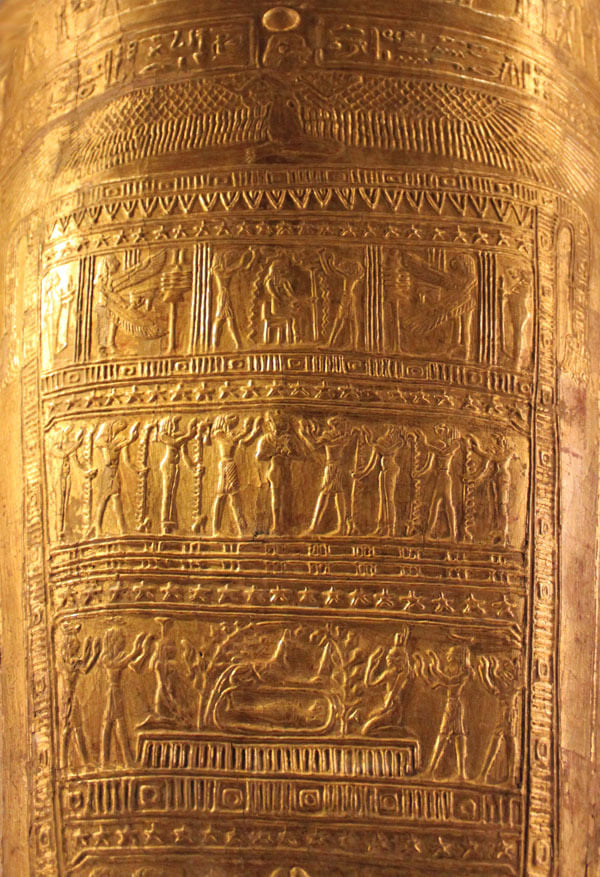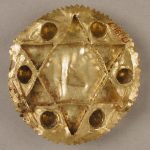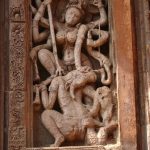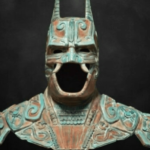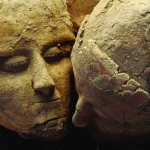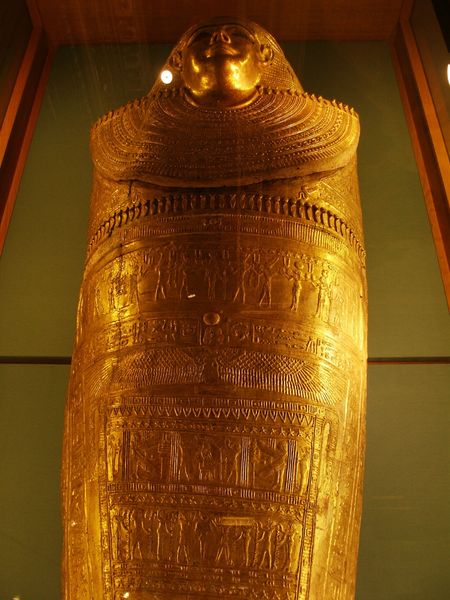
A Closer Look at the Sarcophagus
The sarcophagus is adorned with detailed carvings and hieroglyphs, each telling a story of ancient Egyptian beliefs, rituals, and the divine journey of the pharaoh into the afterlife. The top section shows Tutankhamun’s face, serene and regal, symbolizing his divine status. The layers of intricate patterns, gods, and symbols are meticulously carved, illustrating the craftsmanship of the artisans of that era.
Significance of the Golden Sarcophagus
The sarcophagus not only served as a protective vessel for the young pharaoh’s mummified body but also as a piece of art that embodies the religious and cultural beliefs of ancient Egypt. The gold used in the sarcophagus represents the eternal nature of the sun and the divine nature of the pharaoh. Hieroglyphs and images of gods such as Osiris and Anubis, as well as scenes depicting the pharaoh’s journey through the afterlife, emphasize the importance of the afterlife in Egyptian culture.
The Discovery
When Howard Carter first peered into the tomb and was asked what he saw, his famous response was, “Wonderful things.” The discovery of Tutankhamun’s tomb provided an unprecedented glimpse into ancient Egyptian burial practices and the wealth and status afforded to a pharaoh, even one who died at a young age.
Legacy and Influence
The discovery of Tutankhamun’s tomb and its treasures has had a lasting impact on both Egyptology and popular culture. It spurred a renewed interest in ancient Egypt, leading to further archaeological discoveries and a greater understanding of this ancient civilization. The artifacts from Tutankhamun’s tomb, including his golden sarcophagus, have been displayed in museums around the world, allowing millions to marvel at the splendor of ancient Egyptian art and culture.
Conclusion
The golden sarcophagus of Pharaoh Tutankhamun remains one of the most significant and visually striking artifacts from ancient Egypt. Its detailed craftsmanship and the rich symbolism offer a deep insight into the religious and cultural practices of the time. As we continue to study and admire this ancient treasure, it stands as a testament to the enduring legacy of ancient Egypt and its impact on the world’s historical narrative.
